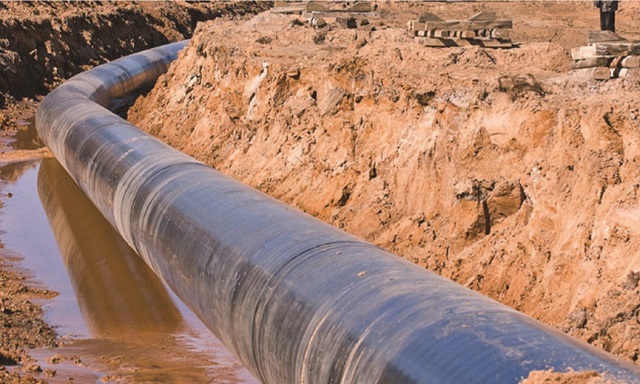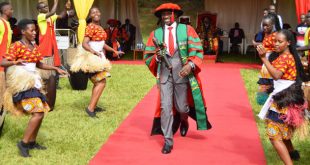
Kampala, Uganda | THE INDEPENDENT | Catholic bishops under the Uganda Episcopal Conference are set to discuss the East African Crude Oil Pipeline-EACOP in their plenary scheduled for this month, Uganda Radio Network has learned.
EACOP has been at the center of discussions across the world with different environmental activists lobbying different actors including possible funders and the Catholic church, in particular, to denounce the project on grounds that is an environmental disaster waiting to happen.
The activists have made endless trips to the Vatican where they met Pope Francis and other officials with the hope of riding on the influence of the Catholics in the world to halt the project whose final investment decision has already been made. Catholic bishops in Uganda have been avoiding making any comment on the matter.
However, a source privy to the matter, says that the bishops could not take any decision individually. “This is a broad matter. It involves many players and a lot is at stake. Many organizations and media have been making endless calls to several Bishops asking the question. What is the stand of the Catholics in Uganda on EACOP? Well, we might have that answer soon,” the source noted.
The source adds that on such matters Bishops use the Uganda Episcopal Conference to express their collegial responsibility through collective action and ensure the progress of the Church and coordination of its social and pastoral ministry.
“The decisions taken by the conference give guidance to the Catholic Church or even the entire country. Sometimes, when there is a pressing issue, the Bishops issue pastoral letters to communicate their official stand on a particular matter,” the source adds.
Rt. Rev. Robert Muhiirwa Akiiki, the Bishop of Fort Portal diocese, who also doubles as the vice-chairperson of UEC has confirmed the possibility of Bishops discussing this matter. Muhiirwa noted that the bishops have not been meeting due to COVID-19 restrictions. He however added that since the matter seems to be very critical, there is no way how Bishops can avoid discussing it.
Bishop Muhiirwa notes that their discussion will be greatly guided by Pope Francis encyclical – on the subject of care for the environment. The encyclical deals with climate change, pollution, genetically-modified organisms, the loss of biodiversity, and access to safe drinkable water. Muhiirwa notes that humans have an important task to protect the environment, adding that anything that is distractive should be discouraged.
Officials in the Vatican have already expressed their thoughts on the subject. In an article published in the Vatican News outlet, Fr. Joshtrom Kureethadam, the coordinator of the Ecology and Creation sector of the Dicastery for Promoting Integral Human Development noted that the Catholic Church stands with the people of Uganda and Tanzania in denouncing the EACOP project.
He asks both governments to consider investing in projects that are in line with preserving and caring for our common home, the poor, and the economy. According to Fr. Kureethadam, Catholic Church teachings recognize that the climate crisis is a grave moral issue that threatens all living beings in their common home.
“Humanity’s ability to defend human life, health, dignity, and security is harmed by the climatic emergency and ecological crisis. Our ability to promote the common good and care for God’s creation is likewise severely harmed by the simultaneous crises,”he was quoted by the Vatican news.
The government through the Energy Minister, Ruth Nankabirwa has already courted Anglican Bishops to support the project and the development of Uganda’s oil and gas sector given the significant positive impact on the country.
The proposed 1,443-kilometer pipeline, if completed, would be the longest heated crude oil pipeline in the world and is expected to generate up to 34 million tons of carbon emissions each year- more than double the current emissions of Uganda and Tanzania.
However, the host government and TotalEnergies, which is developing the pipeline with China National Offshore Oil Corporation (CNOOC), have been defending the project noting that they have carried out the environment and social impact assessment to ensure that the impacts on the environment are avoided or minimized.
The resistance put by environmentalists seems to be hurting the project as several financiers have been shunning it. But the oil companies and host governments are also unsettled as they keep lobbying to ensure that the project goes on as planned.
*****
URN
 The Independent Uganda: You get the Truth we Pay the Price
The Independent Uganda: You get the Truth we Pay the Price


